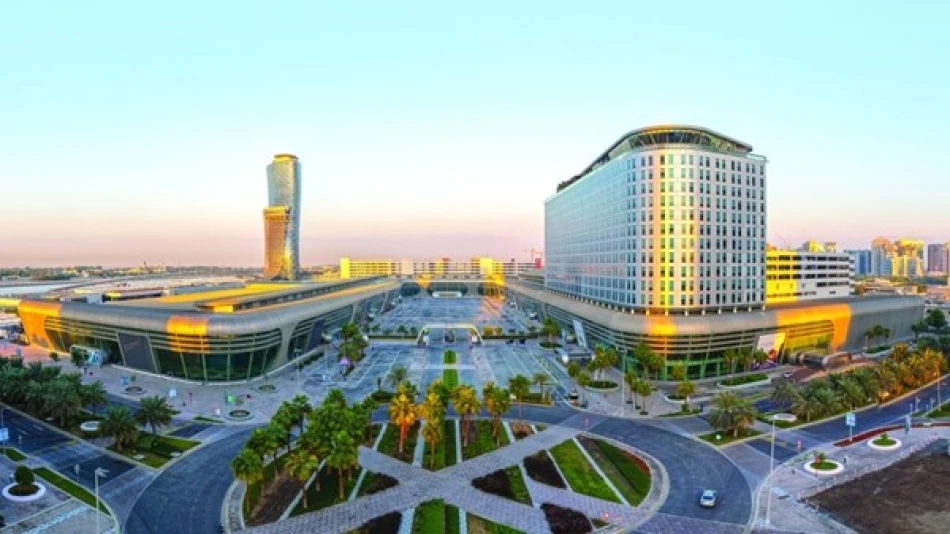
ADNOC Releases 2024 Environmental, Social, and Governance (ESG) Report: Driving Sustainability Transformation
ADNEC Group Charts Green Course with 53% Recycling Boost and Major Resource Cuts
Abu Dhabi's ADNEC Group has delivered measurable sustainability wins in 2024, cutting electricity consumption by 7% and water usage by 28% per event while more than halving its recycling rate improvements. The diversified conglomerate's latest ESG report signals how UAE enterprises are translating national climate commitments into operational reality—and potentially setting benchmarks for event management companies globally.
Operational Efficiency Meets Climate Goals
The numbers from ADNEC Abu Dhabi Centre tell a story of systematic resource optimization. A 7% reduction in electricity consumption per event may seem modest, but when scaled across the hundreds of exhibitions, conferences, and major events the venue hosts annually, the cumulative impact becomes significant. The 28% drop in water consumption per event is particularly noteworthy in a desert nation where water security remains a strategic priority.
More striking is the 53% improvement in recycling rates, coupled with an overall reduction in landfill waste. This dual achievement—less waste generated and more waste diverted from landfills—suggests ADNEC has moved beyond basic compliance toward circular economy principles.
Strategic Alignment with UAE's 2050 Vision
ADNEC Group CEO Hamid Matar Al Dhaheri positioned these gains within the UAE's broader Net Zero 2050 Strategic Initiative, launched in 2021 as the country's commitment to achieving carbon neutrality. This alignment isn't coincidental—it reflects how UAE state-linked entities are being tasked with demonstrating climate leadership ahead of international benchmarks.
The timing is crucial. As the UAE prepares to host COP28 outcomes and maintains its position as a regional business hub, companies like ADNEC serve as proof points for the country's sustainability credentials. International event organizers and exhibitors increasingly factor environmental performance into venue selection, making these metrics competitive advantages.
Benchmarking Against Global Venue Standards
ADNEC's performance gains compare favorably with sustainability initiatives at major international venues. Singapore's Marina Bay Sands has achieved similar water reduction targets, while London's ExCeL has focused heavily on renewable energy adoption. However, ADNEC's integrated approach across facilities, events, food and beverage, services, tourism, and media operations offers broader scope for impact measurement.
The 53% recycling improvement particularly stands out when measured against industry standards. Most major exhibition centers struggle to exceed 40% waste diversion rates due to the complexity of managing diverse exhibitor waste streams and temporary installations.
Investment and Market Implications
For investors tracking ESG performance in the Gulf region, ADNEC's metrics provide tangible evidence of execution capability rather than aspirational targets. The company's ability to deliver year-over-year improvements while maintaining operational growth suggests its sustainability investments are generating returns through operational efficiency rather than just compliance costs.
This operational approach to sustainability could influence how regional peers approach their own net-zero commitments. Rather than relying primarily on carbon offsetting or renewable energy purchases, ADNEC's focus on resource efficiency and waste reduction offers a replicable model for similar enterprises across the Middle East's events and hospitality sectors.
Most Viewed News

 Layla Al Mansoori
Layla Al Mansoori






